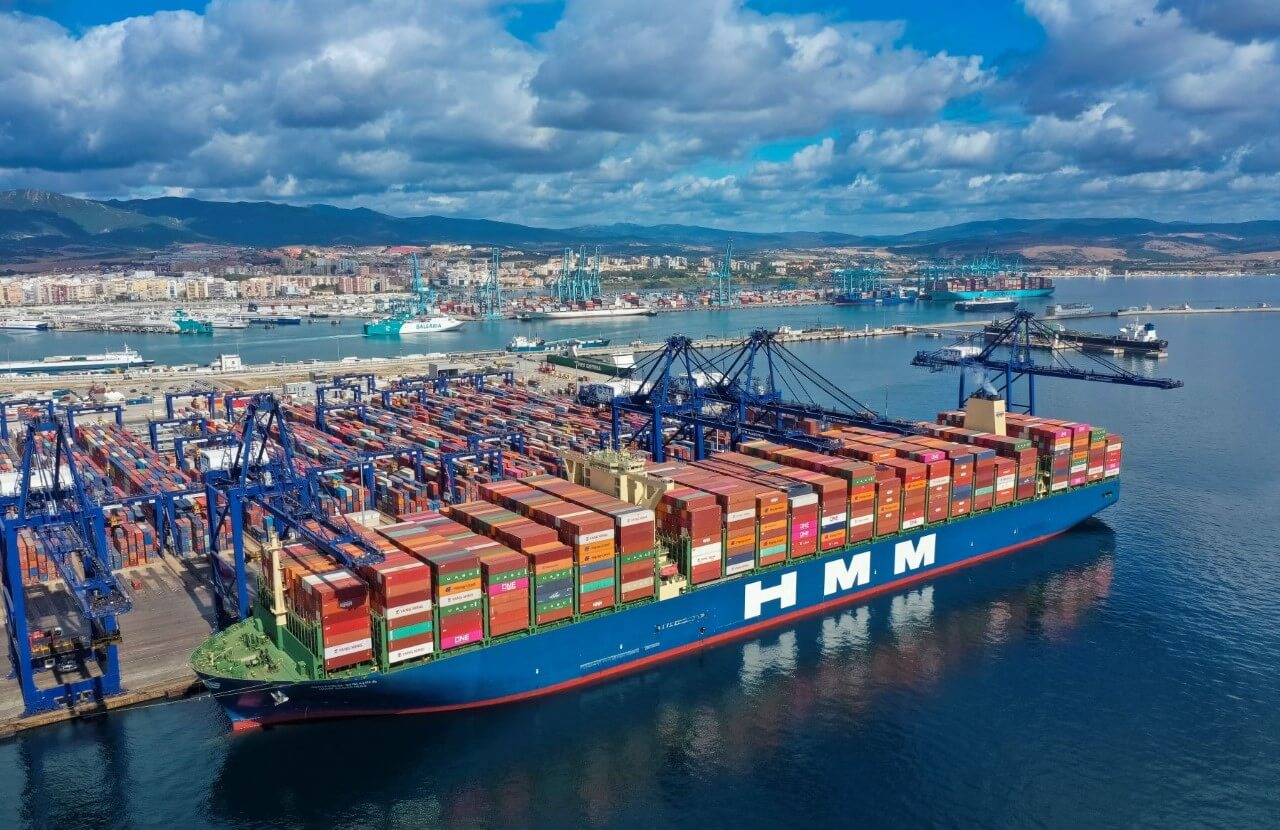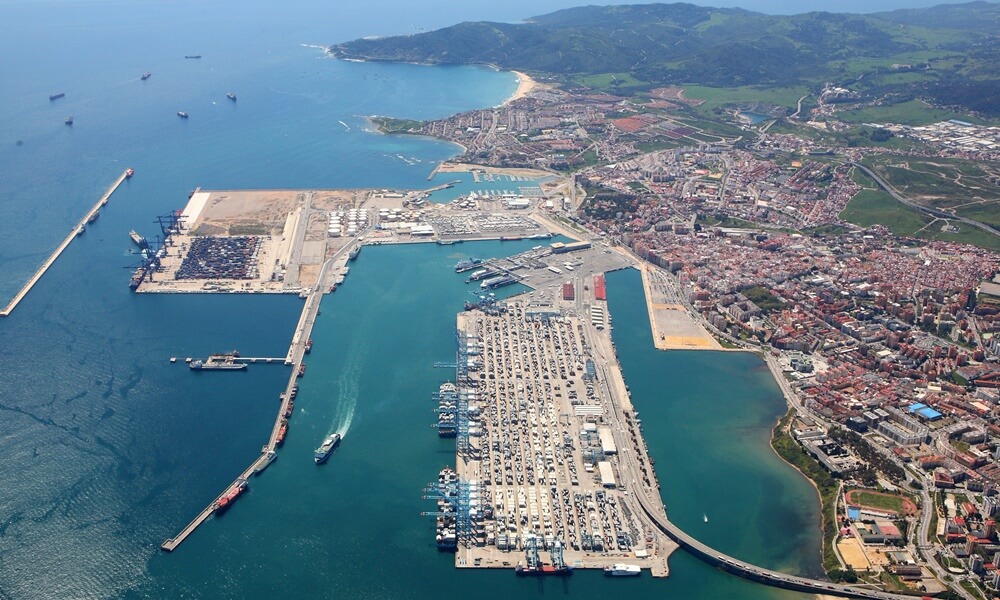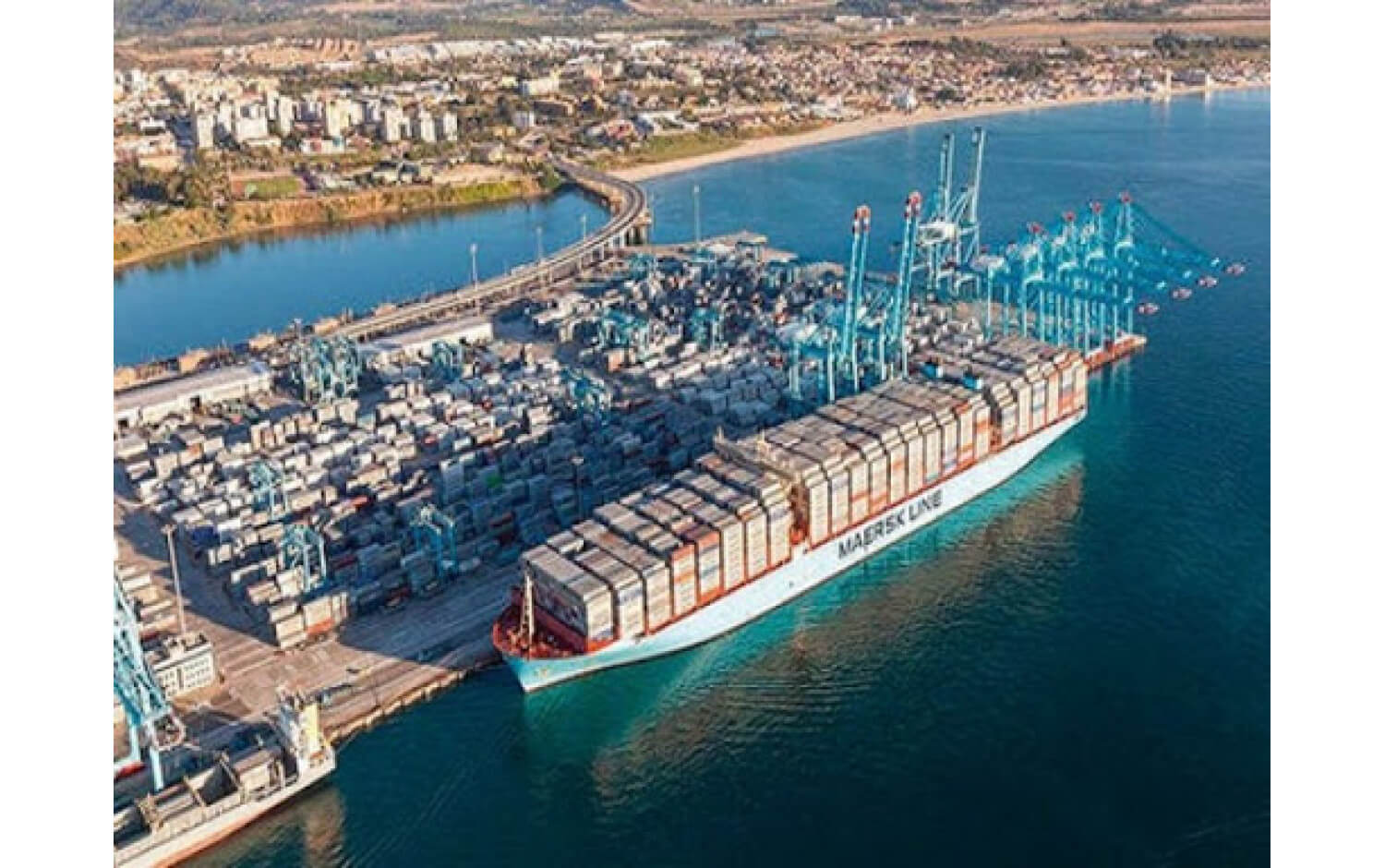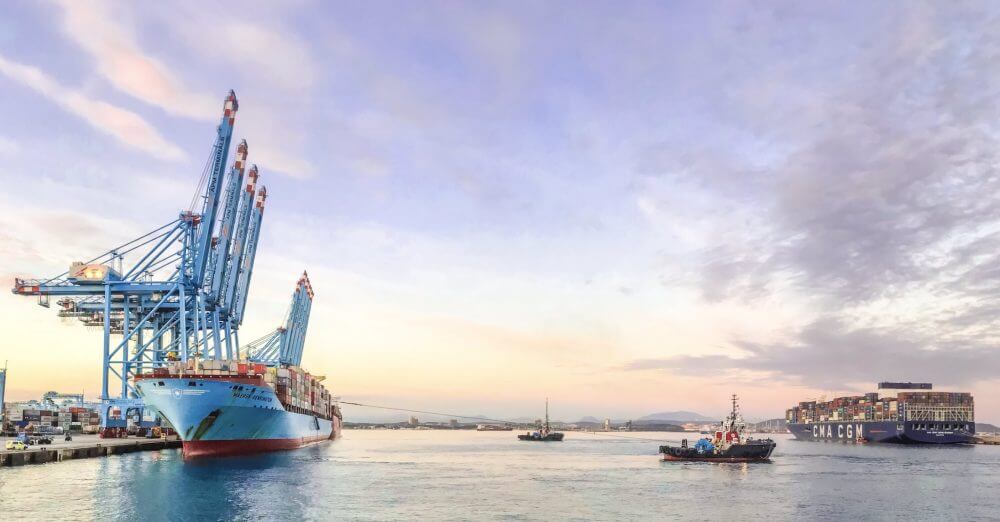MED MOSAIC
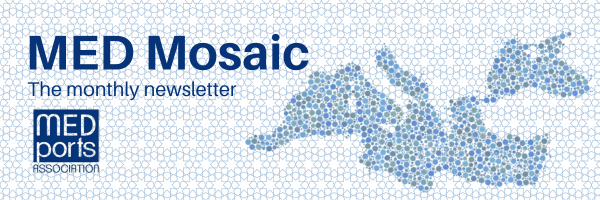
Issue 4
HOT SEAT:
Interview with Gerardo Landaluce – MEDPorts Association Vice-President
Port of Algeciras and MEDports’ Green Initiatives, Resilience, and Stakeholder Engagement in a Changing Maritime Landscape
- In recent years, there has been a growing emphasis on environmental sustainability in the maritime industry. Could you share some of the initiatives and strategies that the Port of Algeciras and MEDPorts are implementing to reduce their environmental footprint and promote eco-friendly practices??
Competitiveness, Sustainable Development, and Innovation. These are the key factors of the Porto of Algeciras Bay, a high professional port community that is transitioning to new standards and promoting eco-friendly practices through our Green Strategy. Algeciras, along with the rest of the ports, has manifested its full backing of the European Green Deal and will actively contribute towards its implementation. In fact, the port is actively promoting circular economy, investing in connecting the port to TEN-T intermodal corridors and speeding up the deployment of a new hydrogen strategy within our port facilities. Also leading the OPS connections that will be the subject of future European regulations and one of the strategies recommended by the World Port Climate Initiative for reducing the environmental impact of seagoing vessels in ports.:
In this new context we find ourselves working in a sustained leadership that is built upon the offer of a wide and competitive range of services based on the new standards that is promoting the sector.
Focusing on Medports’ actions, we must say that it is creating a network of experts in the maritime sector and the Mediterranean, build-up of professionals and relevant institutions that try to enhance this strategic maritime region. The activity of the Association is organized thanks to the involvement of its members around the three Technical Committees, working on key themes of the sea and port: Sustainable Business Development, Cooperation & Partnership, and Promotion. We must highlight:
- The work carried out in the green transition policies.
- The creation of a network for the exchange of maritime port knowledge, with seminars, conferences, and its own agenda.
- The definition and consensus about a Mediterranean strategy, shaping our experience and the actively participating in the actions defined by the association.
- European ports play a critical role in global trade and are essential for the region’s economic stability. How do you see the ongoing political upheaval, particularly with the war in Ukraine, impacting the operations and strategies of European ports, and what steps are being taken to mitigate potential disruptions?
As a European port, our aim is to lead a competitive and sustainable port and logistics offer which creates added value, in close cooperation with customers and contributing to the benefit of the regional economy and employment.
Being a hub port allow us to reach a world direct connectivity with more than 200 ports from 75 countries through 150 regular services operated by 30 shipping lines. Consequently, and thanks to the privileged transit time we can offer to our customers, the export/import traffics are growing steadily. All these assets reinforce the Algeciras Port activities in uncertain contexts, as have been the COVID-19 impact and the Ukraine conflict, where our companies from our Port Community have taken advantage of the opportunity; for example our Port is leading the statistics since 2021 in terms of bunkering performance in the Spanish Port System with outstanding services, and welcomed new high-level operators and bunker suppliers focus on new and sustainable fuels.
It has to be highlighted the importance of the collaboration among Mediterranean Ports, as is the best way to ensure and offer a resilient supply chain in the Mediterranean Sea.
- The recent approval of the inclusion of maritime transport in the ETS Directive is a significant development. What do you anticipate will be the implications for both the maritime industry and your specific port?
Algeciras Port welcomes and supports the European Green Deal and its aims, contributing to reducing the emissions in the maritime sector gradually. Nevertheless, we consider that the transhipment activity in European ports can be negatively impacted if these measures are not introduced with caution and common sense.
It could distort the international market, changing the current European supply chain and therefore it may not be as efficient reducing emissions as thought but diverting traffic flows. In this sense we have offered our full collaboration to participate in further impact assessments or any other initiative to achieve a level playing field with the EU ETS implementation.
Consequently, some EU Transport Ministries has asked the Commission for a moratorium on the implementation of the ETS, so it could be improved, diminishing its negative impact in the port activity, and increasing its effectiveness in terms of reduction GHG. Algeciras Port is aligned with this initiative.
- The shipping industry is under increasing pressure to reduce emissions, particularly through the use of cleaner fuels and the adoption of more energy-efficient technologies. Can you discuss any specific projects or partnerships that are aimed at advancing sustainable shipping practices within the Port of Algeciras and across MEDPorts?
The Port Collaborative Decision Making (PortCDM) it is a project that try to achieve Just-in-Time arrivals, a concept that had previously been highlighted as one of the keys to reducing emissions in the industry. Thanks to the technological tools that implement this concept in the Port of Algeciras, it has been possible to reduce, during the year 2021-2022, by 12% the number of waiting vessels and by 10% the GHG emissions from these. However, there is still a wide room for improvement.
Important initiatives are located in the Algeciras Bay, such as the Cepsa Green Hydrogen Corridor between the ports of Algeciras and Rotterdam, which has the support of the APBA and private companies, with which to develop the necessary infrastructure to convert the Bay of Algeciras into one of the hydrogen distribution points in Europe.
Another important initiative, in order to take advantage of synergies, is the Andalusian Hydrogen Valley that aims to boost the production of different alternative fuels based on Hydrogen.
As a leading port in bunkering, we have a great responsibility in facilitating the energy transition. In this sense, Algeciras Port offers a broad portfolio of transition and alternative fuels (LNG. Second generation biofuels…) to facilitate the decarbonization of the maritime sector.
With stakeholder associations such as MEDPORTS, our goal is to share the knowledge generated around these technologies that reduce the impact of the industry in the Mediterranean region, seeking to cooperate and create alliances based on sustainability with the ports and institutions integrated in the association.
Currently, we are working on the Marlog Conference to define common goals, with the objectives to strengthen innovation and sustainable projects which enable the development of our ports, aligning Mediterranean strategies with the new global trends and regulations that will govern the sector.
- Environmental conservation often goes hand in hand with community engagement and stakeholder collaboration. How does the Port of Algeciras involve local communities and other stakeholders in its sustainability efforts, and what benefits have been observed from these partnerships? Can these be extended to other port communities in the Mediterranean region?
The ports managed by this Port Authority, Algeciras and Tarifa, constitute an important base of activity that generates economic and social development in the surrounding area, where numerous public and private entities concur, each one with different impact on the environment.
For that reason, we launched in 2022 the Algeciras Port Environmental Sustainability Policy, most known as GREEN STRATEGY, in which the APBA directs its efforts to implement the framework of a corporate sustainability strategy with an integrated and transversal environmental approach, which allows it to continue with its sustainable development, with a positive impact in our Port Community and citizens, applying principles in its management as:
- Promote collaborative activities with public and private institutions in its area of influence that promote environmental, social, and economic awareness in the Bay of Algeciras.
- And continuously improve the different aspects of its Environmental Management System and its environmental sustainability performance, through the environmental objectives established within the framework of the principles of this Policy, the result of its evolution being integrated into decision-making.

